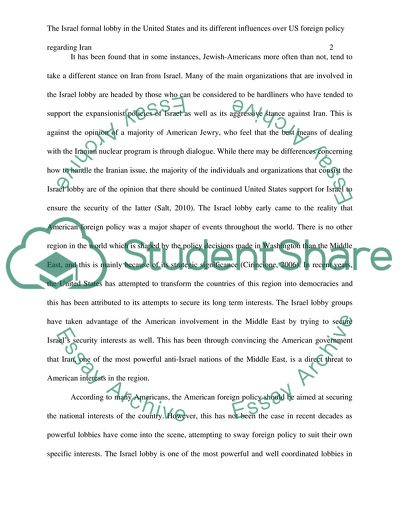Cite this document
(The Israel Formal Lobby in the United States Report Example | Topics and Well Written Essays - 2250 words, n.d.)
The Israel Formal Lobby in the United States Report Example | Topics and Well Written Essays - 2250 words. https://studentshare.org/politics/1808586-the-israel-formal-lobby-in-the-united-states-and-its-different-influences-over-us-foreign-policy-regarding-iran
The Israel Formal Lobby in the United States Report Example | Topics and Well Written Essays - 2250 words. https://studentshare.org/politics/1808586-the-israel-formal-lobby-in-the-united-states-and-its-different-influences-over-us-foreign-policy-regarding-iran
(The Israel Formal Lobby in the United States Report Example | Topics and Well Written Essays - 2250 Words)
The Israel Formal Lobby in the United States Report Example | Topics and Well Written Essays - 2250 Words. https://studentshare.org/politics/1808586-the-israel-formal-lobby-in-the-united-states-and-its-different-influences-over-us-foreign-policy-regarding-iran.
The Israel Formal Lobby in the United States Report Example | Topics and Well Written Essays - 2250 Words. https://studentshare.org/politics/1808586-the-israel-formal-lobby-in-the-united-states-and-its-different-influences-over-us-foreign-policy-regarding-iran.
“The Israel Formal Lobby in the United States Report Example | Topics and Well Written Essays - 2250 Words”. https://studentshare.org/politics/1808586-the-israel-formal-lobby-in-the-united-states-and-its-different-influences-over-us-foreign-policy-regarding-iran.


